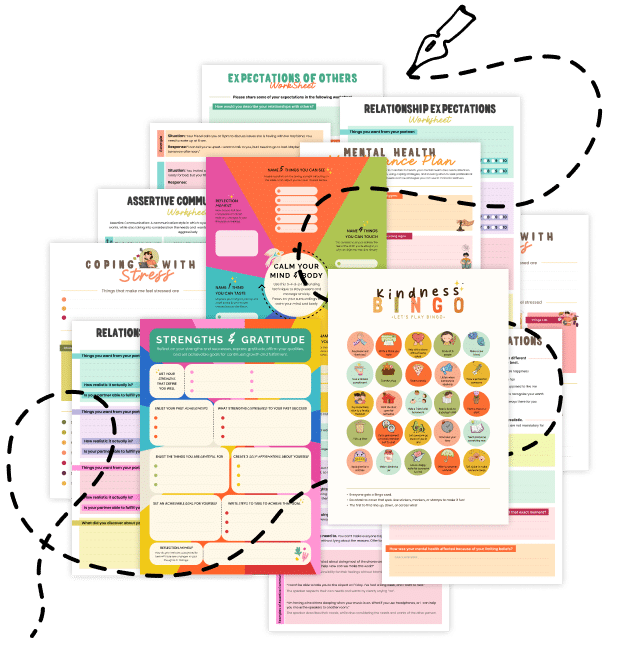20 Things About Thermal Stress Cognition
Thermal Stress Cognition explores how extreme temperatures can influence your brain’s performance. In this post, you’ll discover 20 fascinating insights that reveal the impact of heat and cold on everything from attention and memory to decision-making and productivity. Whether you’re looking to optimize your workspace or simply understand how your body reacts to temperature extremes, these tips will help you stay sharp and resilient.
1. What Is Thermal Stress Cognition?
Thermal Stress Cognition explores how extreme temperatures—whether hot or cold—affect our brain’s performance. It looks at the link between our body’s thermal regulation and cognitive functions like focus, memory, and decision-making.
2. Temperature’s Direct Impact on the Brain
Your brain is sensitive to temperature changes. When exposed to thermal extremes, neural activity can slow down or become erratic, affecting how quickly you process information.
3. Effects on Attention and Concentration
High or low temperatures can reduce your ability to focus. When your body is under thermal stress, maintaining attention becomes more challenging, leading to increased distractions.
4. Influence on Memory Performance
Thermal stress can interfere with short-term and working memory. Whether it’s recalling details from a meeting or remembering a shopping list, temperature extremes may impair memory recall.
5. Decision-Making Under Pressure
Making decisions requires energy and clear thinking. Extreme temperatures add an extra layer of stress, which can cloud judgment and slow down the decision-making process.
6. The Physiology Behind Thermal Stress
When your body encounters extreme temperatures, it initiates physiological responses like sweating or shivering. These reactions are part of your body’s effort to maintain homeostasis, and they also influence cognitive performance.
7. The Role of Stress Hormones
Exposure to thermal stress often increases stress hormones, such as cortisol. Elevated cortisol levels can negatively affect cognition, from impairing memory to reducing problem-solving skills.
8. Real-World Environments Matter
Thermal stress cognition is not just a laboratory concept. It plays a role in everyday settings—be it a hot office, a chilly classroom, or an outdoor worksite—impacting performance throughout the day.
9. Short-Term vs. Long-Term Exposure
Short bursts of extreme temperature might only cause temporary discomfort, but prolonged exposure can lead to more significant cognitive declines. Understanding the duration of thermal stress is key.
10. Individual Variations in Response
Not everyone reacts the same way to thermal stress. Genetics, health, acclimatization, and even personal tolerance levels mean that cognitive effects can vary widely from one person to another.
11. Impact on Workplace Productivity
In a work environment, thermal stress can lower productivity. A poorly regulated office temperature may cause employees to struggle with focus, leading to errors and slower task completion.
12. Educational Settings and Learning
For students, a classroom that’s too hot or too cold can make learning more difficult. Comfort plays a huge role in how well the brain processes and retains new information.
13. Athletic Performance and Cognitive Load
Athletes often face thermal extremes during training and competitions. Maintaining sharp cognitive function in these conditions is crucial for performance and strategic thinking.
14. The Connection to Physical Fatigue
Thermal stress can quickly lead to physical fatigue. As your body works to regulate its temperature, the extra effort can also drain mental resources needed for clear thinking.
15. Adaptive Strategies and Acclimatization
Over time, your body can adapt to certain temperature extremes. Acclimatization may help reduce the negative cognitive effects by gradually enhancing your body’s tolerance.
16. Role of Nutrition and Hydration
Staying hydrated and eating properly are essential strategies. Nutrients and fluids help maintain body temperature regulation, indirectly supporting cognitive performance under thermal stress.
17. Technological Tools for Monitoring
Wearable devices and smart thermostats can help monitor and control your environment. These tools enable you to create a more comfortable setting that supports optimal cognitive function.
18. Implications for Design and Architecture
Building design matters. Offices, schools, and public spaces that manage temperature effectively can boost cognitive performance by reducing thermal stress on occupants.
19. Emerging Research and Future Directions
Scientists are continually discovering how thermal stress impacts cognition. Emerging research is exploring interventions and technologies to mitigate these effects, promising a future where environments are optimized for brain health.
20. Related Topics to Explore
- Cortisol Management: Learn how managing stress hormones can counteract the cognitive decline caused by thermal extremes.
- Cognitive Load Theory: Discover how additional environmental stressors, like extreme temperatures, add to your mental workload.
- Ego Depletion: Understand how prolonged thermal stress can drain your cognitive resources, making it harder to perform demanding tasks.
- Task Switching Costs: Explore how thermal stress may exacerbate the cognitive “tax” incurred when shifting between tasks.
Quick Tips to Boost Thermal Stress Cognition
- Optimize Your Environment: Adjust room temperature or use fans, heaters, or air conditioners to create a comfortable workspace.
- Stay Hydrated and Nourished: Drinking water and eating balanced meals can help your body better regulate temperature and maintain mental energy.
- Take Regular Breaks: Short breaks in a controlled environment can help your brain recover from the stress of temperature extremes.
- Monitor Your Body: Use wearable tech to keep track of your physiological responses and adjust your activities accordingly.
By understanding Thermal Stress Cognition and taking proactive steps, you can safeguard your mental performance—even when the temperature isn’t perfect. Enjoy the benefits of a well-regulated environment and let your brain work at its best!


